Sound recognition Alphabet Worksheets for Ages 3-6
12 filtered results
-
From - To
Discover engaging Sound Recognition Alphabet Worksheets designed for ages 3-6! Our vibrant, interactive worksheets help young learners develop essential phonetic skills by associating letters with sounds. Each activity encourages children to recognize and practice the sounds of the alphabet through fun exercises that promote early literacy. Ideal for preschool and kindergarten classrooms or at-home learning, these worksheets provide opportunities for hands-on exploration and creativity. Parents and educators can foster children's language development effectively, ensuring a solid foundation for reading success. Dive into the world of sounds and letters and watch your little ones thrive in their early learning journey!
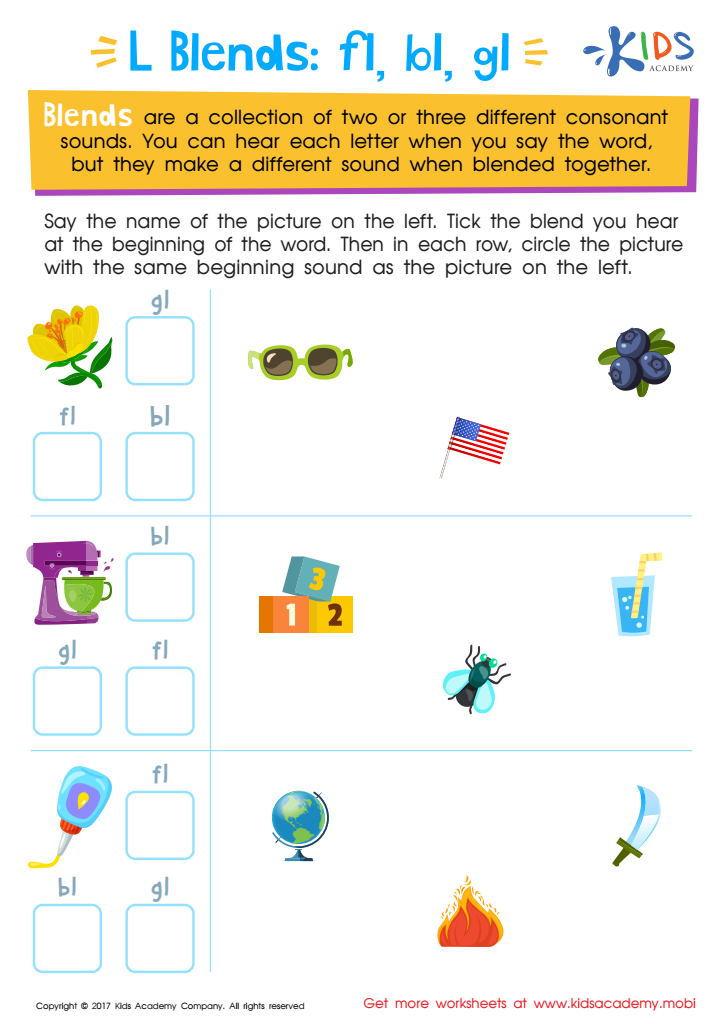

Blending Consonants: "Fl", "Bl" and "Gl" Printable
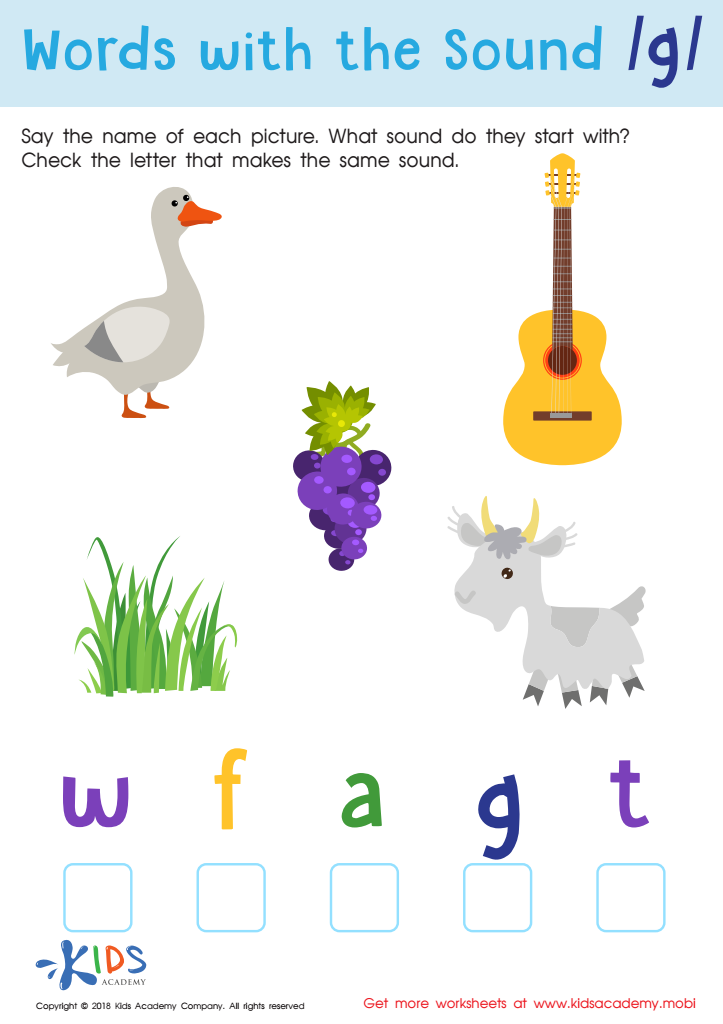

Words with sound g Reading Worksheet
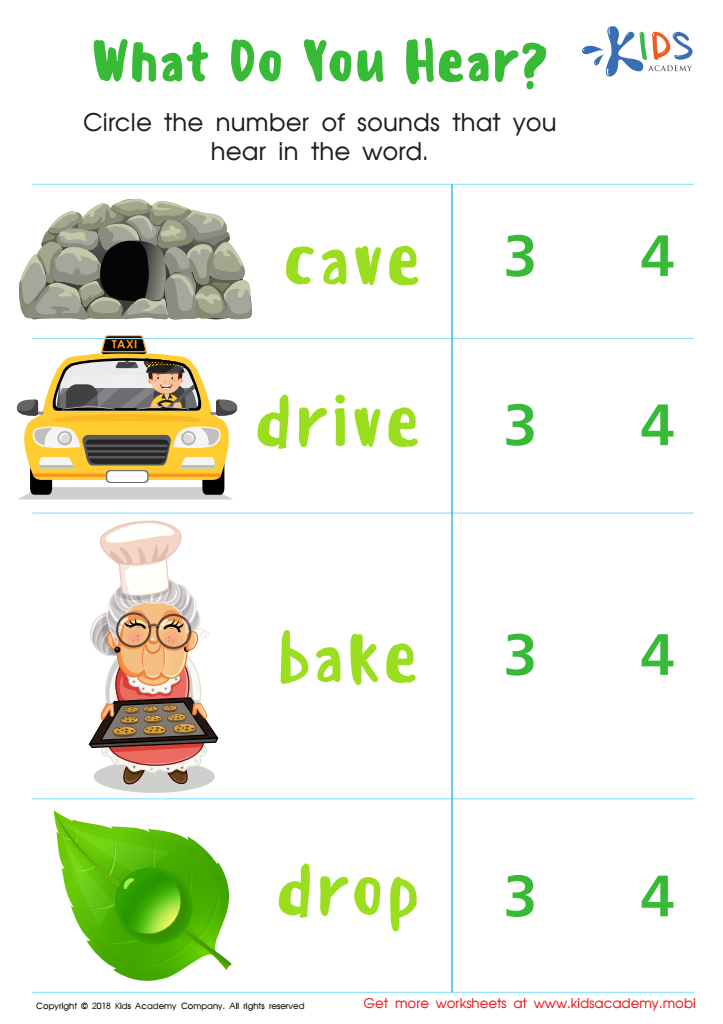

What Do You Hear? Worksheet


Rhyming Words Rhyming Worksheet
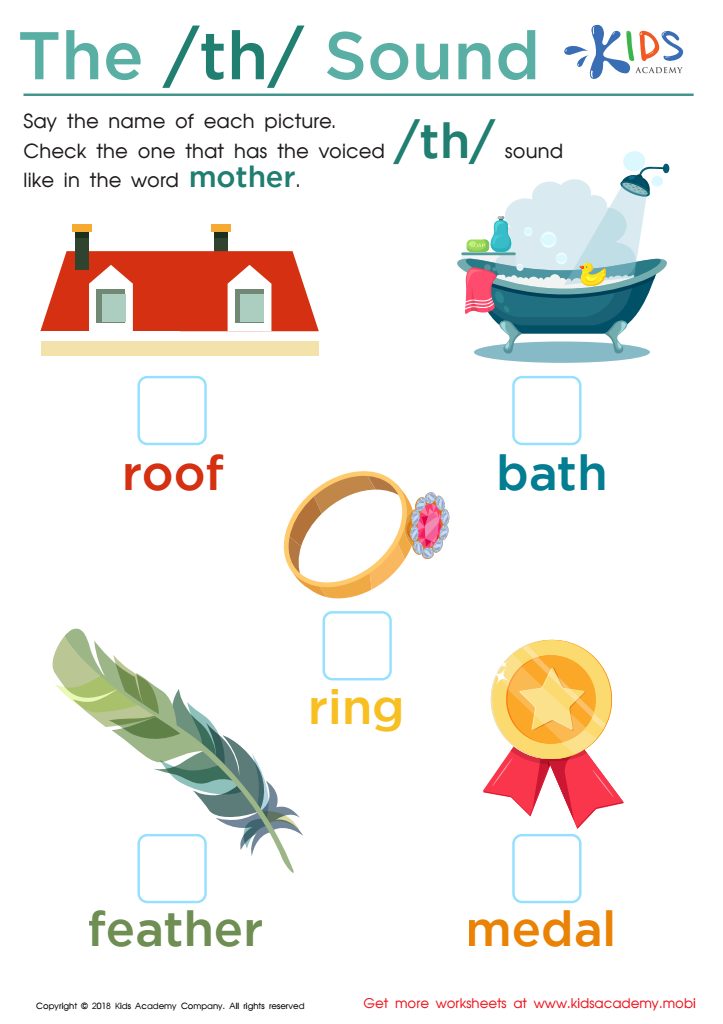

The /th/ Sound Worksheet
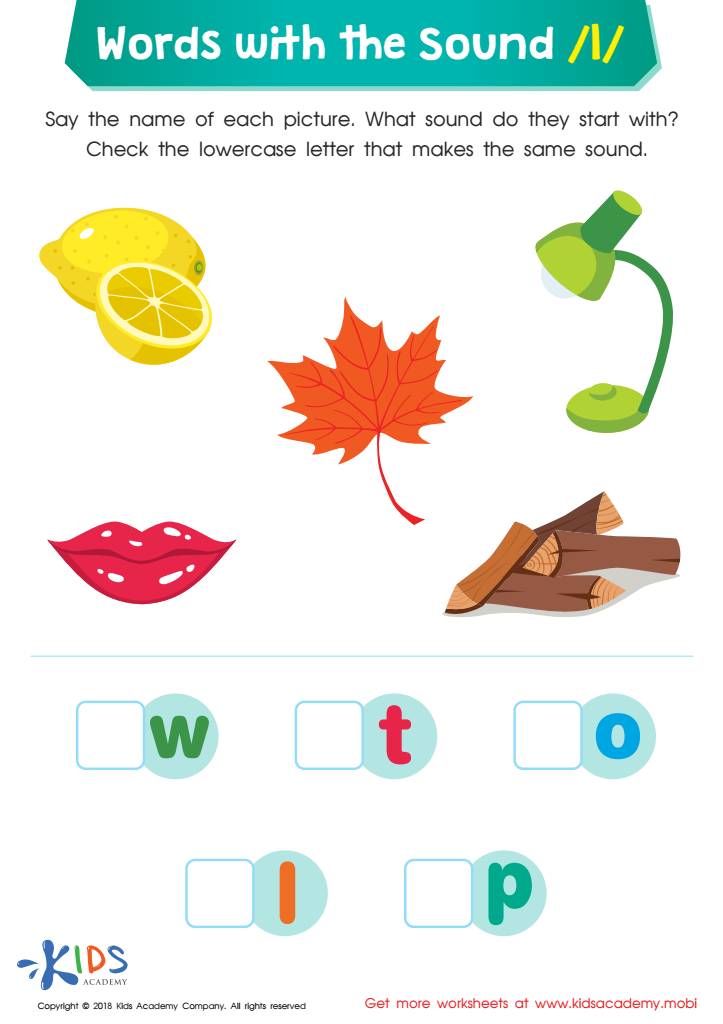

Words with Sound L Reading Worksheet
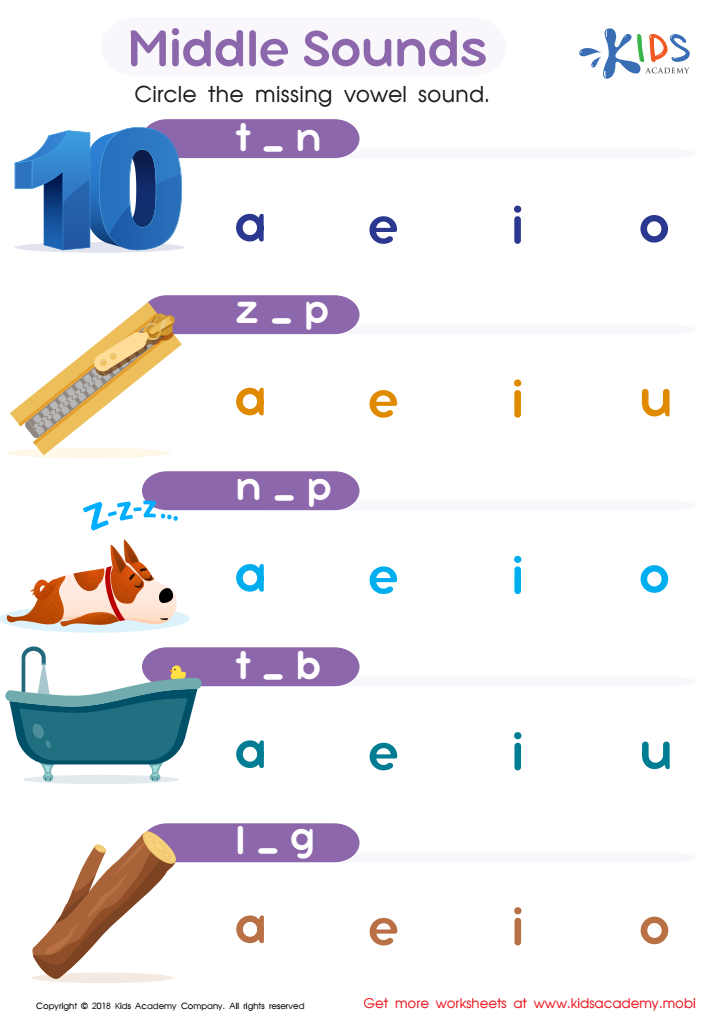

Middle Sounds Worksheet


Long and Short U Worksheet


First Words: Picture Rhymes Worksheet
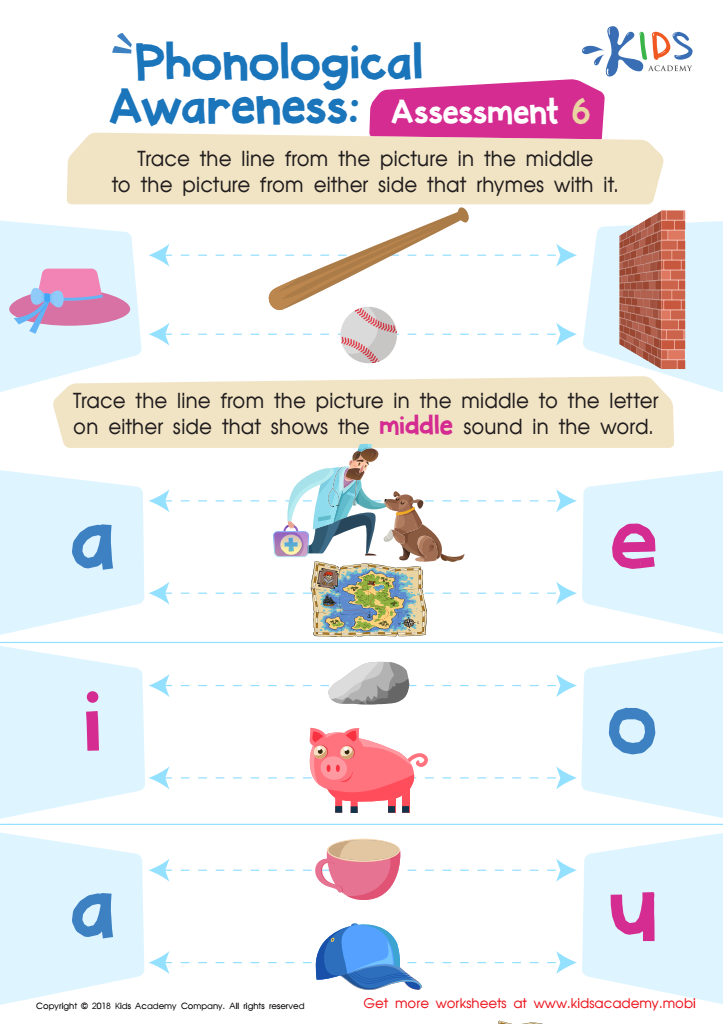

Phonological Awareness: Assessment 6 Worksheet
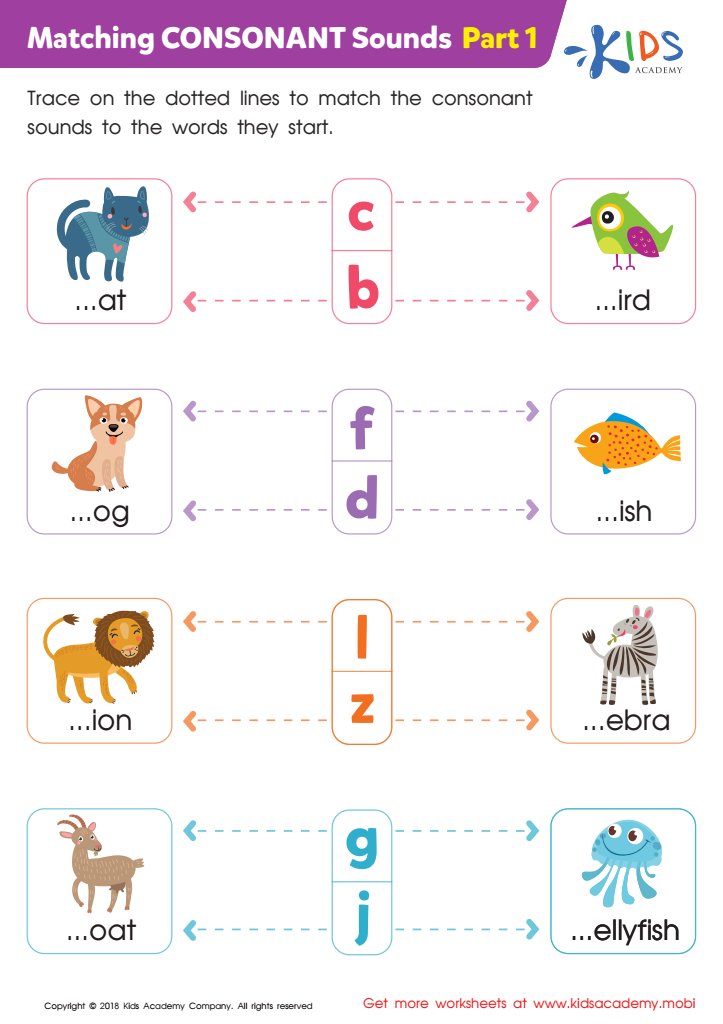

Matching Consonant Sounds: Part 1 Worksheet
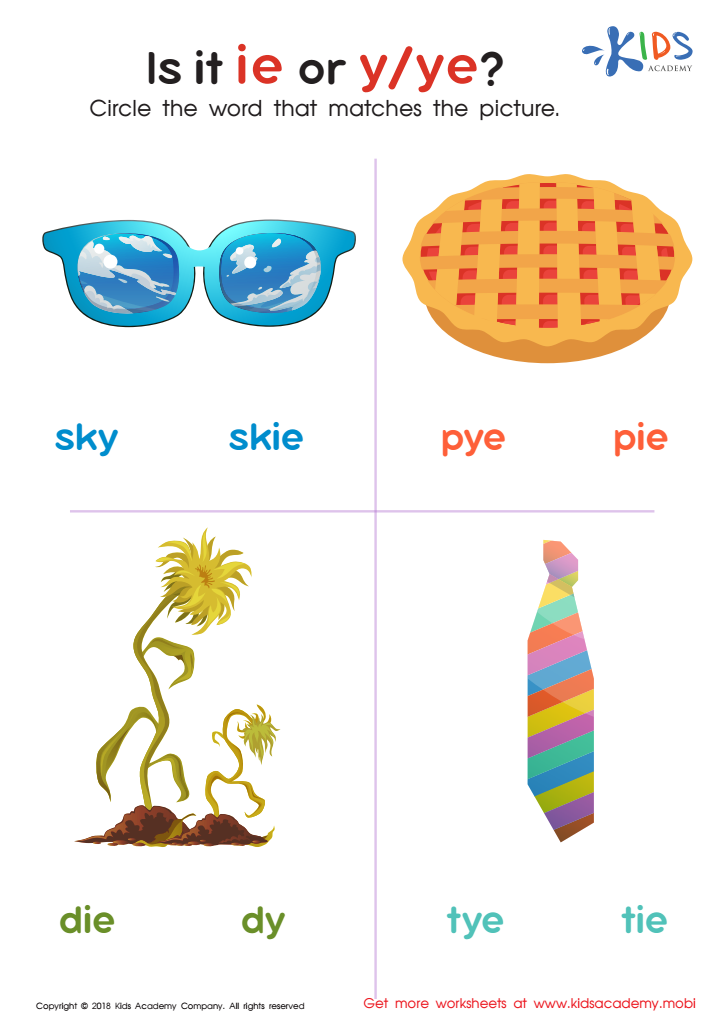

Is It IE or Y/Ye? Worksheet
Sound recognition, particularly in the context of the Sound Recognition Alphabet for children aged 3-6, is a foundational element in early literacy development. Parents and teachers should prioritize this skill because it equips young learners with the tools to decode language effectively. Recognizing that letters correspond to specific sounds, or phonemes, is crucial for reading proficiency. It paves the way for children to blend sounds to form words, an essential step in their journey toward becoming independent readers.
Additionally, sound recognition enhances vocabulary and comprehension. As children connect sounds with letters, they begin to build word associations, which fosters language development. This process not only aids in reading but also boosts overall communication skills.
Moreover, engaging with sound recognition activities nurtures cognitive development. It encourages children to listen carefully, discern between different sounds, and significantly improves their auditory processing skills. Through playful phonetic games and songs, learning becomes enjoyable and interactive, often leading to a lifelong love of reading.
In summary, sound recognition forms the bedrock of literacy, contributes to cognitive growth, and stimulates a child’s innate curiosity about language. Parents and teachers play vital roles in guiding and supporting this critical phase of development.
 Assign to My Students
Assign to My Students





















